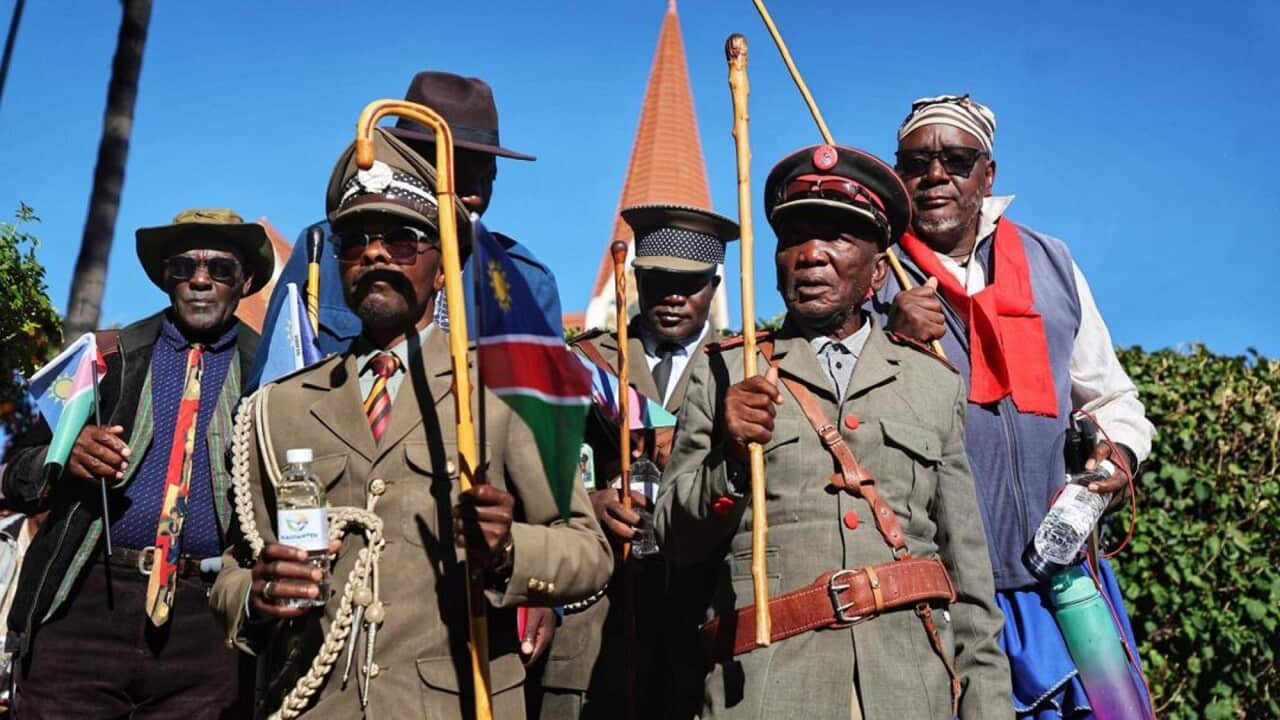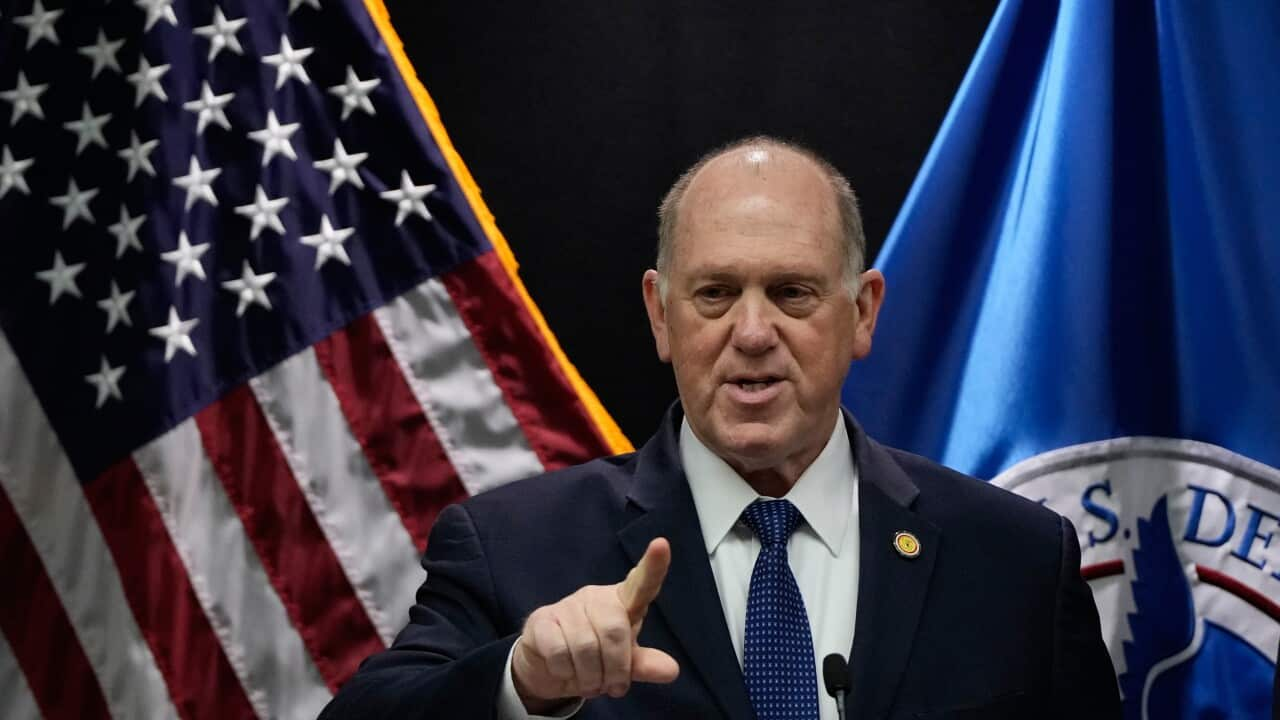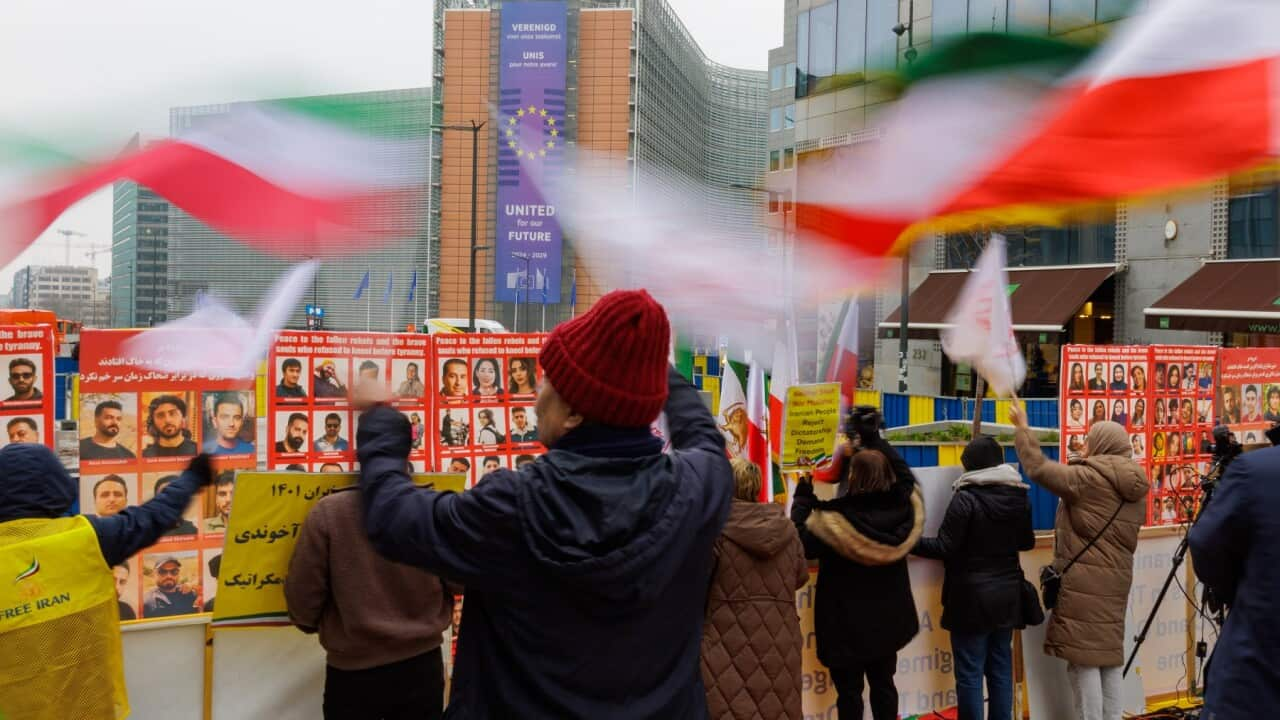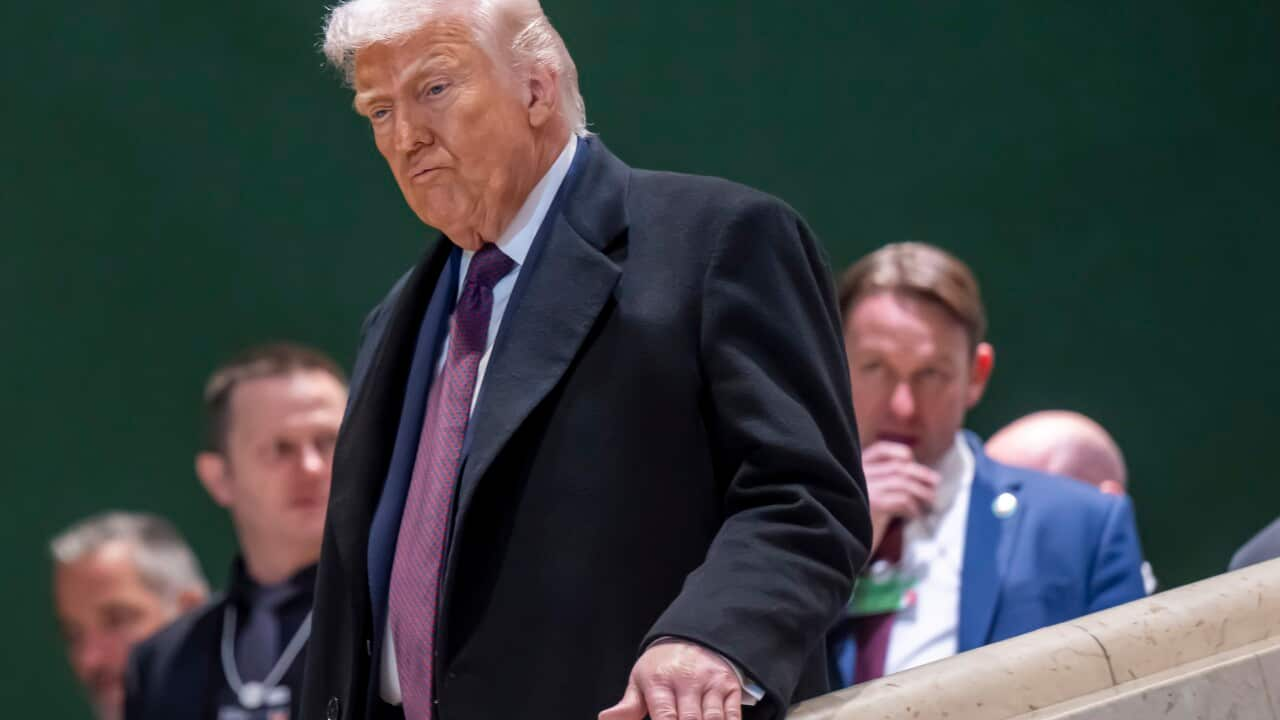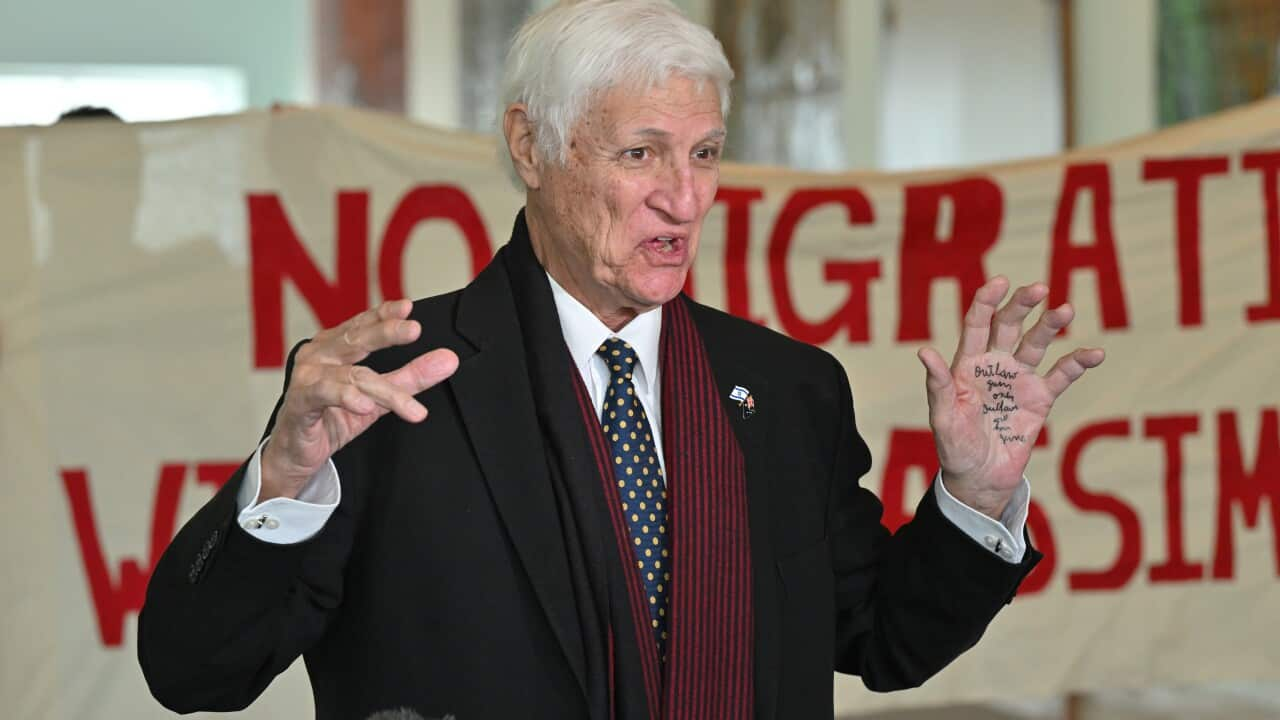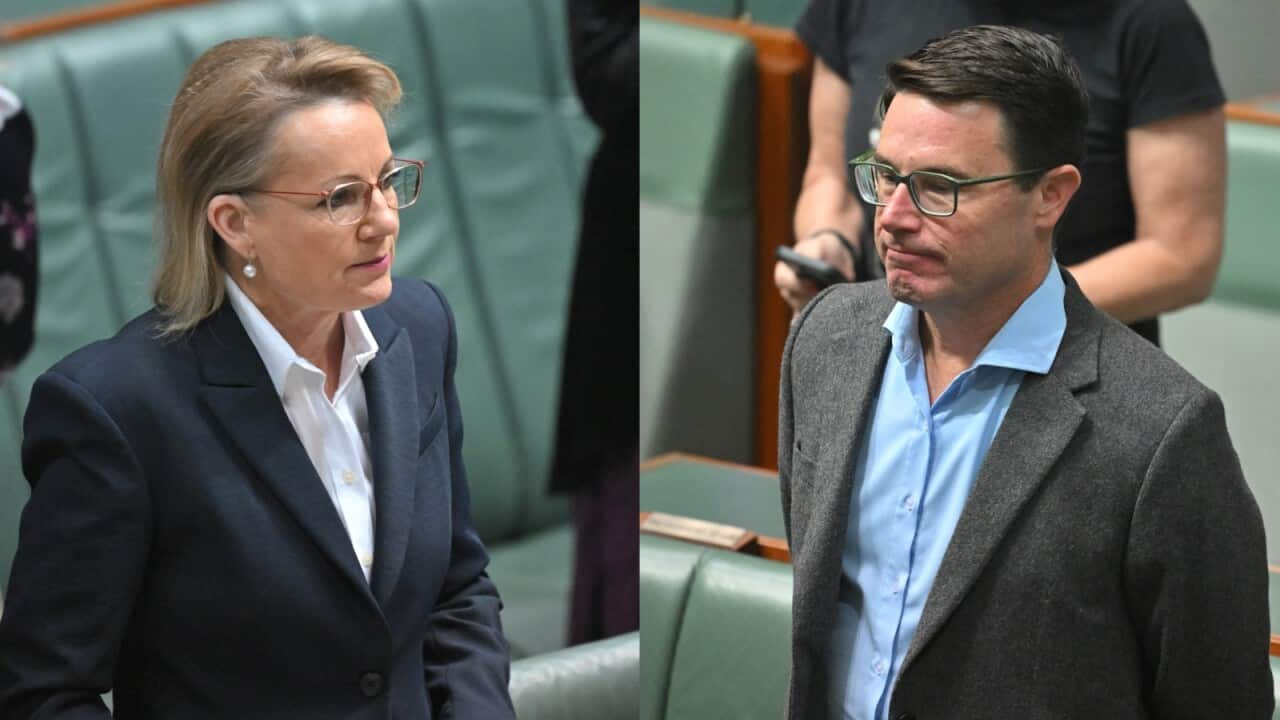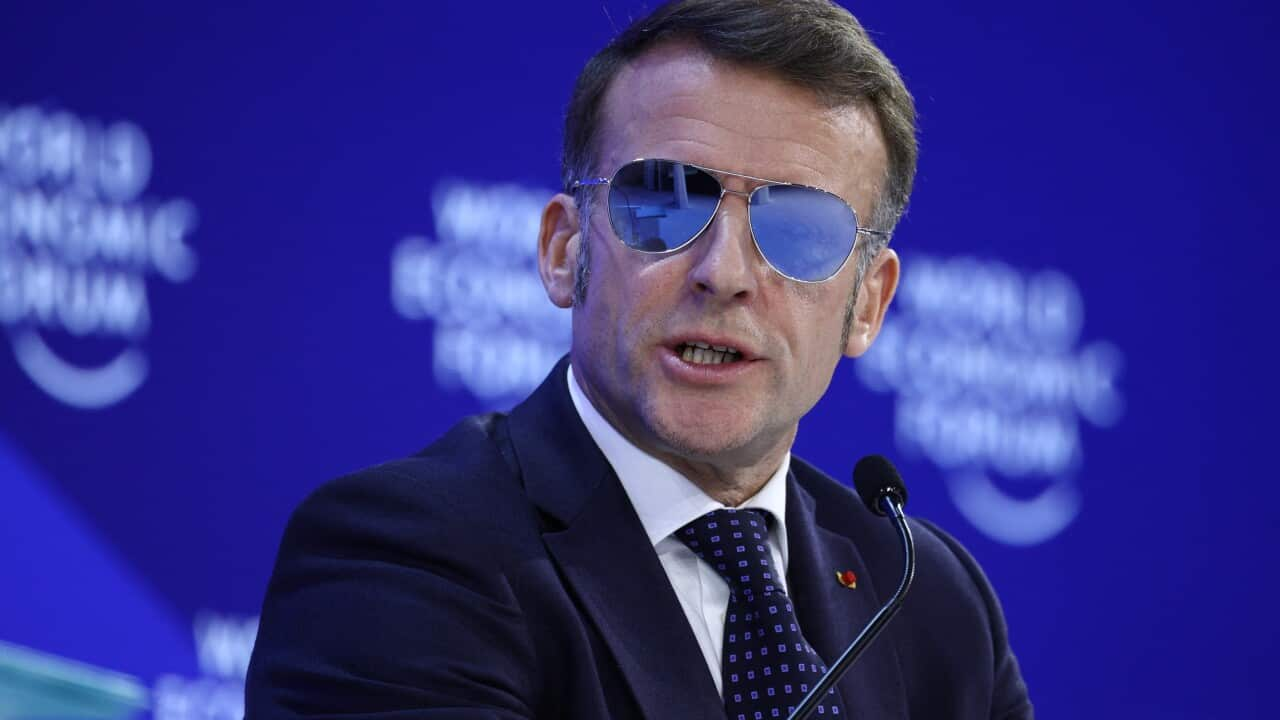Listen to Australian and world news, and follow trending topics with SBS News Podcasts.
TRANSCRIPT
(Sounds of people singing)
In the southwest African country of Namibia, a celebration of resilience in the face of colonial genocide.
The 20th Century is regarded by many scholars as 'the century of genocide' due to the state-sanctioned mass murder of civilians seen in the First and Second World Wars, which led to the establishment of the Genocide Convention in 1948.
But one of these genocides is lesser known - overshadowed by crimes such as the Holocaust and the Rwandan genocide.
Germany now acknowledges the genocide carried out by soldiers between 1904 and 1908 in Namibia, affecting two Indigenous tribes: the Nama and OvaHerero - also called the Herero.
"This is the first genocide of the 20th century. This was actually the prelude to the, you know, to the Holocaust. But it is not recorded anywhere. People are not aware of what has happened here to the same level and same extent as some of the other atrocities."
That's the leader of a faction of the Ovaherero Traditional Authority, Dr Hoze Riruako.
His ancestors were among those that resisted German colonial rule in what was then known as German South-West Africa.
Dr Eyal Mayroz, senior lecturer of peace and conflict studies at the University of Sydney, tells SBS, the German soldiers in the four years to 1908 had a very clear intent.
"The Herero and Nama genocide is often called the forgotten German genocide. So roughly 80 per cent of the Herrero tribe and about 50 per cent of the Nama were killed, massacred, enslaved, death by exhaustion in forced labour. This was organised retaliation for rebellion against the colonial powers."
In 1985, the United Nations' Whitaker Report classified the killings as an attempt to exterminate the two peoples.
Veronica George, a Namibian political science student, says its important the country remembers these crimes.
"It's very important that we celebrate this day and commemorate the people that have lost their lives during the genocide. I'm very grateful that the government has considered this day a public holiday."
Namibia's government chose to mark Genocide Remembrance Day on May 28 because it was on that date that German colonial authorities ordered the closure of concentration camps.
Germany officially described the massacre as a genocide for the first time in 2021, with then-Foreign Minister Heiko Maas agreeing to fund development projects worth close to A$2 billion in Namibia, but stopping short of paying reparations.
"Today we officially refer to these events as what they were: a genocide. We are therefore acknowledging our historical responsibility. In the light of Germany’s historical and moral responsibility, we will ask Namibia and the descendants of the victims for forgiveness."
On the first national day of remembrance of the genocide in Namibia, Namibian President Netumbo Nandi-Ndaitwah says her country is grateful for this acknowledgement.
"We should also find a degree of comfort that the Fed, the German Garmin, has agreed to offer an apology to the affected communities and to the Namibian people in general. We might not agree on the final quantum, but this is part of the complex negotiation we have been engaging in with the German government since 2013."
Namibian officials and representatives of the OvaHerero and Nama people say an apology and formal recognition is not enough.
While the German government paid A$135 billion in reparations for the Holocaust to Jewish victims and the state of Israel from 1945 to 2018, they have resisted offering those in Namibia such compensation.
Dr Mayroz says former colonial powers are worried about the knock-on effect of such a precedent.
"They are offering 1.1 billion euros but refuse to use it as a reparation so they call it a moral and political responsibility but not legal. They're also afraid of other colonies suing them. There is a great fear by many ex-colonial powers including the Germans that if they agree to the word reparations then they will be subjected to a new raft of demands and in the legal proceedings against them."
President Nandi-Ndaitwah says her government will continue to make a case for justice and compensation.
"Justice for Africans and people of African descent through reparations. This theme is talking to the engagement between the two governments, the Namibian government, and the German government, and asking the two governments to conclude the negotiation on genocide, apology and reparation."
